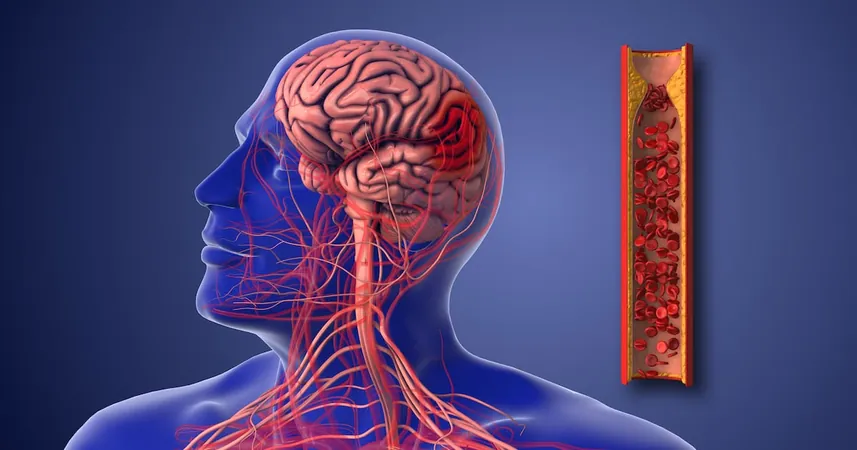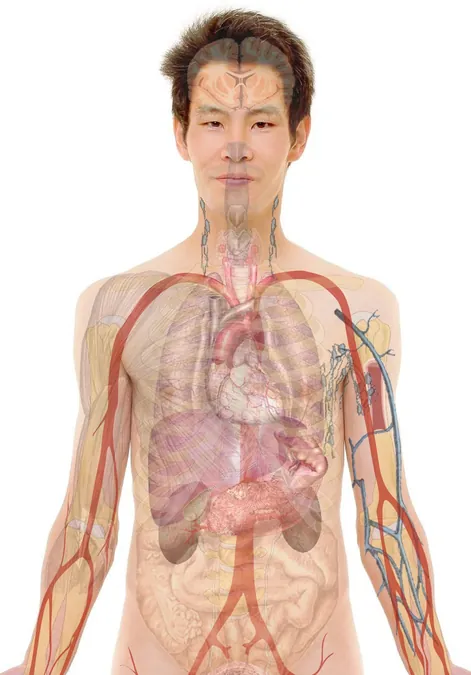
The Rising Threat of Lung Cancer in Non-Smokers: Causes, Symptoms, and Preventive Measures
2025-09-17
Author: Wei
The Alarming Rise of Lung Cancer in Young Adults
Lung cancer has long been considered a disease primarily affecting older, chronic smokers. However, alarming new statistics reveal a surge in cases among younger adults and even non-smokers. This shift necessitates a closer look at the underlying causes, the importance of early symptom recognition, and effective prevention strategies.
Understanding the Causes
While smoking remains the leading cause of lung cancer, responsible for 80 to 90% of cases, this doesn't explain the increasing incidence among non-smoking young adults. Evidence suggests that environmental factors such as radon gas—a harmful gas resulting from the decay of uranium in soil—pose significant health threats, especially for individuals exposed during their formative years.
Fine particulate matter (PM2.5), a byproduct of heavy traffic and industrial pollution, is also a critical risk factor. Workers exposed to substances like asbestos, silica, diesel fumes, and arsenic are further at risk. Additionally, women using biomass fuels for cooking and heating in poorly ventilated spaces are especially vulnerable.
Genetic Factors and Viruses
Research into lung cancer among young adults has uncovered possible genetic elements. Many young patients exhibit mutations such as EGFR and ALK rearrangements, increasing their susceptibility to cancer. Links have also been suggested between certain viruses, like HPV and Epstein-Barr, and lung cancer development.
Identifying Symptoms Early
Lung cancer often remains silent in its early stages, mimicking common ailments, which can lead to delays in seeking medical attention. Awareness of the following symptoms is crucial for timely intervention: - Coughing up blood or rust-colored sputum - Chest pain that worsens with deep breathing or coughing - Shortness of breath or wheezing - Frequent infections that don't improve - Unexplained weight loss or appetite changes - Persistent fatigue or weakness
Proactive Prevention Strategies
Preventing lung cancer hinges on reducing exposure to known risk factors and promoting healthy lifestyle choices. The most effective strategy is complete avoidance of smoking. For current smokers, quitting at any stage significantly lowers their cancer risk. Support through counseling and nicotine replacement therapies can help achieve this.
Staying away from secondhand smoke, testing homes for radon, and implementing mitigation systems are crucial preventive measures. In high-risk workplaces, using protective gear and improving indoor air quality can mitigate exposure to harmful chemicals.
Moreover, maintaining a balanced diet rich in fruits and vegetables, along with regular exercise, strengthens the immune system and further reduces cancer risk.
Your Health Matters!
With lung cancer increasingly affecting young adults and non-smokers, it's more important than ever to stay informed and proactive about your health. Remember to seek medical advice at the first sign of symptoms—early detection can lead to more effective treatment and improved outcomes.






 Brasil (PT)
Brasil (PT)
 Canada (EN)
Canada (EN)
 Chile (ES)
Chile (ES)
 Česko (CS)
Česko (CS)
 대한민국 (KO)
대한민국 (KO)
 España (ES)
España (ES)
 France (FR)
France (FR)
 Hong Kong (EN)
Hong Kong (EN)
 Italia (IT)
Italia (IT)
 日本 (JA)
日本 (JA)
 Magyarország (HU)
Magyarország (HU)
 Norge (NO)
Norge (NO)
 Polska (PL)
Polska (PL)
 Schweiz (DE)
Schweiz (DE)
 Singapore (EN)
Singapore (EN)
 Sverige (SV)
Sverige (SV)
 Suomi (FI)
Suomi (FI)
 Türkiye (TR)
Türkiye (TR)
 الإمارات العربية المتحدة (AR)
الإمارات العربية المتحدة (AR)